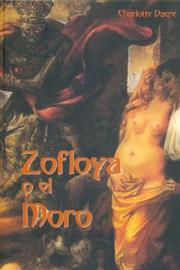I wanted to look into the literary conversation on this topic, so I explored some other blogs and found one that was particularly interesting regarding this topic. Here, the blogger recognizes that the narrator's portrayal of characters is indeed a little shady, but instead of critiquing the narrator, she proceeds to criticize Dacre in light of the narrator's shortcomings. The blog itself is biased and not completely informative, another great example of how important narrative voice is when readers evaluate the reliability and virtue of a work's narration. Even though she (perhaps) mistakenly blames Dacre for her narrator's shortcomings, the blogger makes several points regarding the obvious flaw in the narrator's reasoning. She talks about character development and where it seems to be lacking, remarking that "It is hard to like [Victoria] or wish for her to succeed because, from the very first page on, Dacre condemns her as a spoilt brat and she never truly recovers from this." Clearly, this blog succeeds in analyzing and looking past the manipulative workings of the narrator, but fails to recognize that the narrative voice may not be Dacre's own opinions. Then again, maybe they are.
To read more, click here.

The art of deconstruction requires us to critically analyze everything we see, right down to the narrator's accountability and trustworthiness. When deconstructing a novel, we must never assume anything we see as correct, and we must especially refrain from believing anything the narrator says simply because he/she is revered as "unquestionable," "wise," or "certain." I think Dacre may have written this novel with such knowledge, because she constantly challenges her readers to question what the narrator's saying and why he/she is so biased.
Our narrator's partiality stems mainly from normative views of men and women, exemplifying the former's strengths and the latter's weaknesses. This suggests, to me, that the narrator is not only a man, but a very old-fashioned Romantic, traditional Gothic aristocrat with stereotypical views of gender roles. The passage from 139-41 regarding Latoni, Zofloya's disappearance, and Victoria's mixed feelings, exemplifies these one-sided opinions. Latoni, on his deathbed, says "I envied his beauty, his accomplishments, and hated him for the admiration which they obtained him," and the nature of his character development calls for respect and admiration from the reader, even for such a pathetic man. We tend to see him in a more positive light, as he has taken responsibility for his actions and shown true remorse. In contrast, our heroine is described as "overcome with mixed emotions," and she "found it impossible to account for the degree of feeling which affected her." Here, even though Victoria has committed no crime, she is portrayed as weak and inferior as she struggles to understand even her own emotions. These contrasting descriptions, even exemplified in an evil man and a supposed heroine, are clearly biased toward male virtue.
The narrator seems to suggest that no matter what the situation, a man will always keep his head about him and make decisions logically, as he should. This is the ideal male in Dacre's world, and he is pinned directly against the ideal female who, exemplified in the character Lilla, is described by the narrator as having "innocent... and courteous demeanor," while her "long flaxen hair floated over her shoulders: she might have personified (were the idea allowable) innocence in the days of her childhood," (133). Here the narrator is implying that the ideal woman is Lilla, of whom Victoria grows insanely jealous, and that this ideal persona includes a vision of naivete and innocence.
It seems alarming to me that a female writer, especially in her time, would take a stance that degrades and stereotypes women while idolizing and highlighting the strengths of men. Because of this, I am apprehensive to believe that the ideas and biases of the narrator reflect those of our novelist.
Discussion Questions
Is there any evidence for or against the assumption that our narrator and novelist share the same views? If so, how can we know for certain? Does the novel point to any contradicting values or ideas?
Why is the narrator so biased, and what might we learn from his/her perspective? Can we trust his/her opinion, and why or why not?
No comments:
Post a Comment